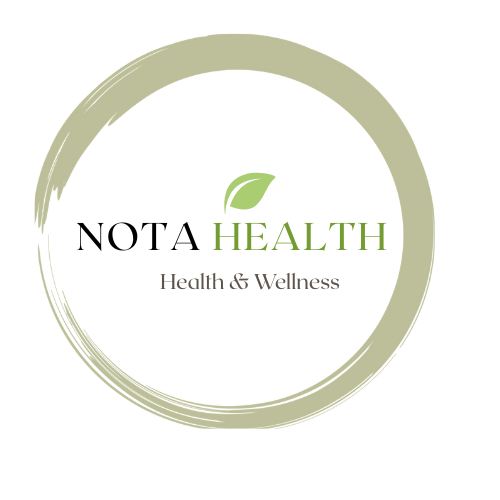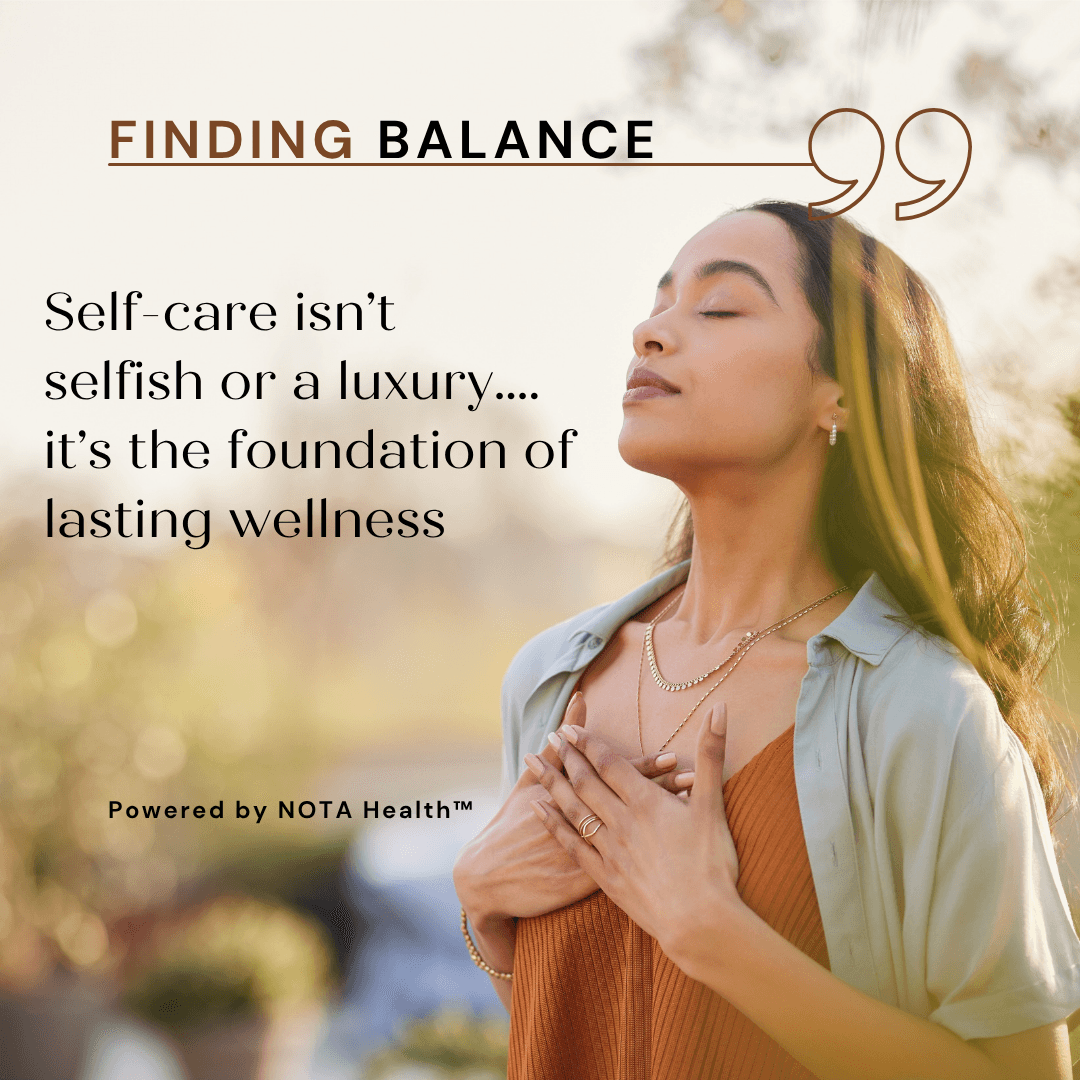
Are You Sleeping Enough to Save Your Life? How Chronic Stress & Sleep Deprivation Raise Your Risk for Heart Attack and Cancer (+ 5 Science-Backed Ways to Fight Back)
I know what it feels like to lie awake at night, utterly exhausted but wired with racing thoughts, a clenched jaw, and a pounding heart.
During the worst of my burnout, I was running on less than 4 hours of sleep most nights.
I was juggling caregiving, work, school, and family; and pushing my health to the back burner. I didn’t realize that this chronic sleep deprivation and unmanaged stress were silently putting me at serious risk for heart disease and even cancer.
If you’re living in survival mode and calling it normal… you’re not alone. But it’s also not sustainable.
Let’s talk about what the science says because your sleep is more than rest. It’s your body’s built-in repair system.
The Link Between Chronic Stress, Poor Sleep, and Disease
We often think of stress and sleep loss as inconvenient side effects of a busy life. But studies show they can be direct risk factors for serious conditions like:
Heart attacks and cardiovascular disease
Certain cancers
Diabetes and metabolic syndrome
Autoimmune flare-ups
Anxiety, depression, and cognitive decline
Sleep and stress are deeply intertwined. When you’re stressed, cortisol and adrenaline keep your body in “fight-or-flight” mode, making it harder to fall asleep and stay asleep.
And without deep restorative sleep, your body can’t regulate stress hormones properly. It’s a vicious cycle.
Startling Stats You Need to Know

Recent research reveals just how damaging chronic sleep deprivation is:
Sleeping less than 6 hours per night increases your risk of a heart attack by 200–300%.
Less than 5 hours of sleep per night is associated with a 52% increased risk of dying from cardiovascular causes.
The World Health Organization has classified night shift work as a probable carcinogen due to circadian disruption.
Short sleep (under 6 hours) is linked to increased activity in genes that promote inflammation, stress response, and tumor growth.
Getting at least 7 hours of quality sleep may reduce your risk of developing heart disease and cancer by more than 50%.
These stats are alarming—but they’re also empowering, because sleep is something you can work on improving.
How Chronic Stress Magnifies the Damage
Stress isn’t always bad. Acute stress in small doses helps you adapt, grow, and respond to challenges. But chronic stress, the kind that lingers for weeks or months...has a far more damaging effect:
Elevates cortisol, which increases belly fat and blood sugar
Disrupts melatonin and sleep cycles
Increases inflammation, which plays a role in almost every chronic disease
Suppresses immune function, leaving you vulnerable to infections and abnormal cell growth
Combined with sleep loss, it’s a recipe for burnout, disease, and emotional exhaustion.
How Much Sleep Do You Really Need?
According to the CDC and the American Academy of Sleep Medicine:
Adults need 7–9 hours of high-quality sleep per night
Sleep should be uninterrupted, with sufficient time spent in deep and REM stages
More important than just quantity is quality—meaning restful, consistent sleep in a healthy rhythm
You might survive on 4–5 hours, but your body is paying a hidden price.
My Turning Point
For me, the warning signs came in waves: extreme fatigue, headaches, trouble concentrating, chest tightness, and anxiety. I brushed it off as “normal mom life” or “just stress.”
But when I nearly blacked out from exhaustion, I knew something had to change.
I committed to protecting my rest the same way I’d protect a loved one in crisis. That’s when my healing started.
If you’re reading this, it’s not too late to reclaim your health.
5 Ways to Protect Your Heart, Your Cells, and Your Sanity from Chronic Stress & Sleep Deprivation
Here’s how to fight back naturally, holistically, and with intention.
1. Create a Non-Negotiable Nighttime Ritual
Your body thrives on rhythm. Wind down with a nightly routine that signals to your brain: it’s safe to rest.
Take an evening walk
Power down electronics 1 hour before bed
Use calming herbal teas like chamomile, lemon balm, or passionflower
Read, journal, meditate or stretch with soft lighting
Try magnesium-rich foods (almonds, dark leafy greens) or a natural supplement
NOTA Health Tip: Try a sleep tracker or journal to monitor your rest patterns and adjust as needed.
2. Regulate Cortisol Through Daily Decompression
Cortisol naturally spikes in the morning and drops at night—unless stress keeps it elevated. Help your body reset by:
Walking outdoors in morning sunlight
Practicing breathwork, yoga, or guided meditations
Taking mindful breaks during the day
Laughing, connecting, and limiting multitasking
📥 Need help getting started? Download the free NOTA Health Burnout Barometer™ to assess your stress levels and track progress.
3. Ditch the “Tired but Wired” Cycle
When you stay up late to catch up, your brain gets stuck in hyperarousal. Instead:
Limit caffeine to before 2 PM
Avoid late-night scrolling or doomscrolling
Use blue-light blocking glasses in the evening
Set a firm bedtime alarm...yes, even adults need one
Expert Tip: The hormone melatonin is easily disrupted by screens and late light exposure.
4. Support Your Sleep with Nutrition

Your diet directly affects your sleep quality and stress resilience:
Eat tryptophan-rich foods (turkey, oats, pumpkin seeds)
Balance blood sugar with protein and fiber at dinner
Avoid sugar, alcohol, and heavy meals before bed
Stay hydrated, but limit fluid intake 1–2 hours before sleep
🥣 Try this: A soothing “sleep snack” like banana + almond butter or chamomile tea + oat cookies.
5. Prioritize Recovery Like It’s a Job
Rest is not a luxury...it’s a necessity for long-term health.
Schedule naps or quiet time on busy days
Block your calendar for evening wind-down hours
Say no to late-night obligations that rob your recovery
Protect your peace like your life depends on it because it does
NOTA Health Mindset Shift: You’re not lazy for resting. You’re wise for preserving your energy.
Final Thoughts: Sleep Is Your Superpower
You don’t need to overhaul your life overnight...but one small shift at a time can change your entire health trajectory.
When I started honoring my body’s need for rest and creating space for healing, my energy came back. My anxiety eased. My hormones stabilized.
And I finally felt present again.
You can, too.
Ready to Take Back Your Sleep & Stress Resilience?
🎁 Grab your free copy of the NOTA Health Burnout Barometer™ and start tracking your stress and sleep patterns today.
Or explore the full Burnout Recovery Toolkit—packed with printable guides, and calming rituals to help you reclaim your health from the inside out.
📚 References:
UChicago Medicine - ( 2024 ) Sleep Prevention and Heart Disease:
National Library of Medicine ( 2012 )
https://pmc.ncbi.nlm.nih.gov/articles/PMC3627372/
European Heart Journal (2019) – https://academic.oup.com/eurheartj/article/40/20/1600/5418549
Journal of the American College of Cardiology (2017) – https://www.jacc.org/doi/full/10.1016/j.jacc.2017.03.572
CDC – Sleep and Chronic Disease – https://www.cdc.gov/sleep/about_sleep/chronic_disease.html
Proceedings of the National Academy of Sciences (2013) – https://www.pnas.org/content/110/17/6823
WHO IARC Monographs, Shift Work & Cancer – https://monographs.iarc.who.int/wp-content/uploads/2018/06/mono98.pdf
JOIN OUR FREE NEWSLETTER Today!
Get weekly expert-backed health tips, latest health news, food-as-medicine guides, recipes, curated wellness resources to help you reclaim your health and live life to the fullness.

Heal from the inside out - One Step at a Time
NOTA Health™ LLC| 3651 PeachTree PKWY, STE E Suite 109, Suwanee, GA 30024
©2026 NOTA Health™ , LLC

